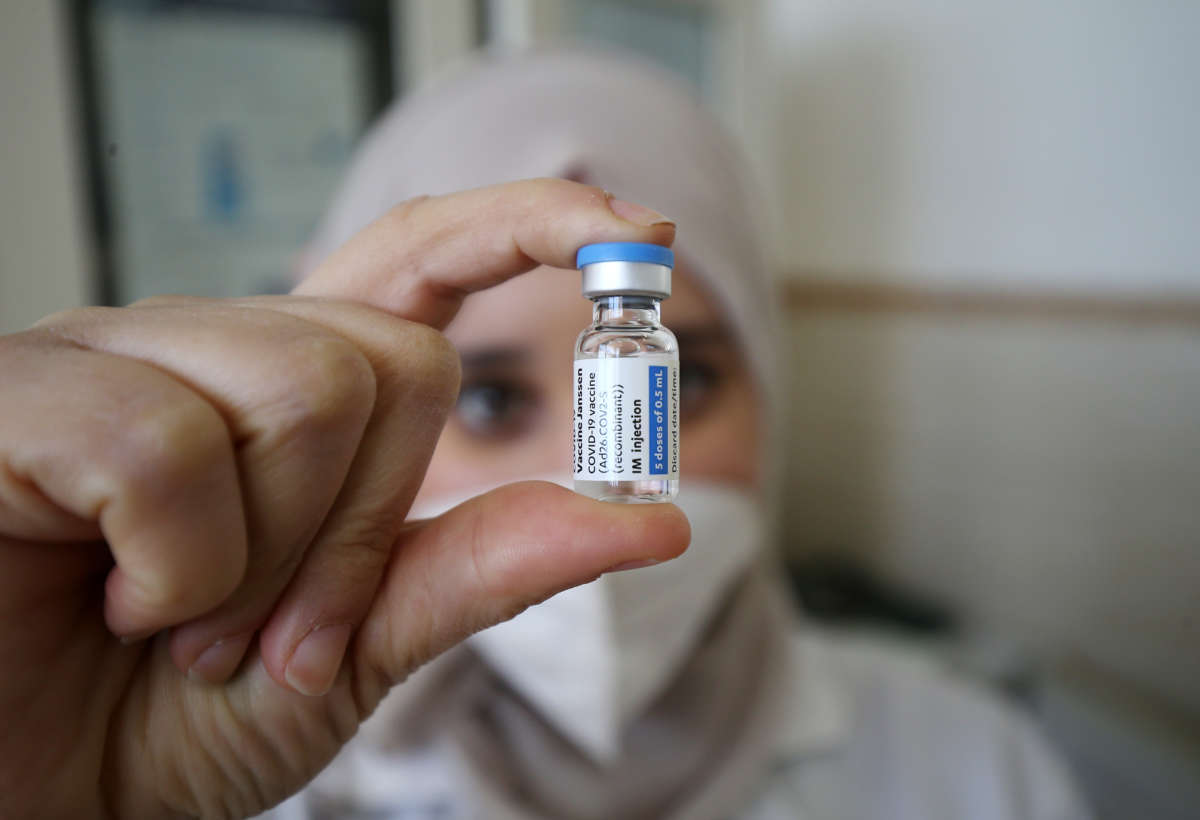My grandmother, Ila Bose, passed away in October after several days in the hospital. The exact trajectory leading to her death is not known — she had pneumonia towards the end — but my mother (also a physician) suspects she may have had lingering effects from a previous Covid case.
As horrible as it is to say this, our family were the lucky ones. My grandmother was well-off compared with most people in India, and while she faced adversities throughout her life, access to medical care was not among them. She even received two doses of one of India’s vaccines.
The country’s large vaccine industry is being depended upon to meet the minimal goals of COVAX, the international public-private partnership that is meant to initially vaccinate up to 20 percent of the populations of Global South countries.
This initiative, doomed from the start, has failed poor countries. The African Union reports that only 11 percent of the population has been fully vaccinated in all of Africa; only 16 percent have received any shot at all. Even so, these countries don’t have vaccines to spare: 64 percent of the vaccine supply has been used up.
Can you imagine looking at these numbers if your loved ones lived in Africa? This is vaccine apartheid: the deep-seated inequality of global vaccine distribution along national lines that reflect racial and economic divisions.
The COVAX plan was orchestrated by U.S. billionaire Bill Gates, who has somehow parlayed a career at Microsoft into becoming an influential figure in global public health.
It Hurts U.S. Too
The emergence of the omicron variant reveals how vaccine apartheid directly affects those of us in wealthy countries too. It has created petri dishes where the coronavirus can further evolve and then spread in all countries, rich and poor.
Or to put it another way: an injury to one is an injury to all. Unless we come together to stop what is a global problem, we will not reach a solution for any of us.
Labor has a crucial role to play. Our status as workers gives us power, and it also gives us a basis for solidarity across borders.
National Nurses United has made a good start — joining 27 sister unions worldwide to bring a petition against vaccine apartheid to the United Nations. That union helped push the Biden administration into supporting a relaxation of intellectual property rules at the World Trade Organization, which would make vaccines more widely available in the long run.
The Cuba Solidarity Campaign, a labor-backed nonprofit in the U.K., has been raising funds to assist the blockaded Cuban government to acquire raw materials, medicines for treatment, and syringes and vials. This doesn’t just benefit Cuba — the five vaccines developed there could offer the Global South an alternative source for vaccines besides the ones developed by rich countries.
A Shared Future
For those of us in richer countries, building union support for a fight against vaccine apartheid can be part of developing a broader common sense in our unions about how global inequality hurts us all.
To the virus, we are all hosts. To our bosses, we are expendable for profits and can be turned against each other. For example, the accounting industry has used the opportunity of the pandemic to dramatically increase offshoring while laying off workers in the U.S.
When the omicron wave began, the Biden administration immediately banned travelers from several southern African countries — while still allowing them from countries like the U.K. and Israel that also had omicron cases.
These sorts of divisive moves are unacceptable if we are going to have a shared future on the planet. We can say instead that we will live as one.
Our most important fundraising appeal of the year
December is the most critical time of year for Truthout, because our nonprofit news is funded almost entirely by individual donations from readers like you. So before you navigate away, we ask that you take just a second to support Truthout with a tax-deductible donation.
This year is a little different. We are up against a far-reaching, wide-scale attack on press freedom coming from the Trump administration. 2025 was a year of frightening censorship, news industry corporate consolidation, and worsening financial conditions for progressive nonprofits across the board.
We can only resist Trump’s agenda by cultivating a strong base of support. The right-wing mediasphere is funded comfortably by billionaire owners and venture capitalist philanthropists. At Truthout, we have you.
We’ve set an ambitious target for our year-end campaign — a goal of $250,000 to keep up our fight against authoritarianism in 2026. Please take a meaningful action in this fight: make a one-time or monthly donation to Truthout before December 31. If you have the means, please dig deep.
